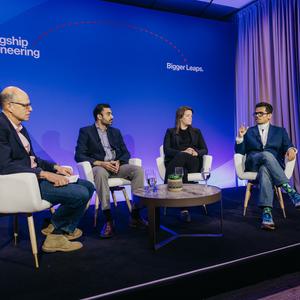Headlines warn of yet another variant of SARS-CoV-2 as we play what Ed Yong aptly called in The Atlantic ‚Äú‚Äù with the virus. While vaccines have dramatically reduced hospitalizations and saved countless lives, new variants are emerging and slipping past our immune defenses, leaving us steps behind in our efforts to curb the pandemic. Ultradynamic viruses like SARS-CoV-2, Influenza, and HIV mutate rapidly, making it challenging to develop and deploy vaccines that provide durable protection from infection. Scientists at ƒ¢πΩ ”∆µAPP turned their attention to such viral threats to envision a future in which we could predict potential variants of concern and develop vaccines against them before an outbreak. This exploration led to the founding of Apriori Bio and the company‚Äôs Octavia‚Ñ¢ platform that is enabling new vaccines and antibody drugs that protect against current and future viral threats. To understand more about this new company and its timely efforts, we spoke to Apriori Bio CEO and Co-founder and Flagship Origination Partner Lovisa Afzelius.
How is Apriori changing how we approach vaccination?
Vaccines trick the immune system into producing an antibody response by using a protein present in a virus. If the immune system then encounters that protein, it is already equipped to respond, preventing disease or reducing the severity of disease. Mutations in the viral RNA give rise to variations in those target proteins that the immune system may not be able to recognize as the same threat. Apriori has the tools to predict future variants of concern and understand the totality of the current and future variant space. Our engine Octavia allows us to rethink the entire paradigm of vaccination, defining the antibody repertoire needed for protection now and in the future. With this insight, we can design antigens to elicit the necessary immune response for continual protection, creating what we call variant-proof vaccines.






